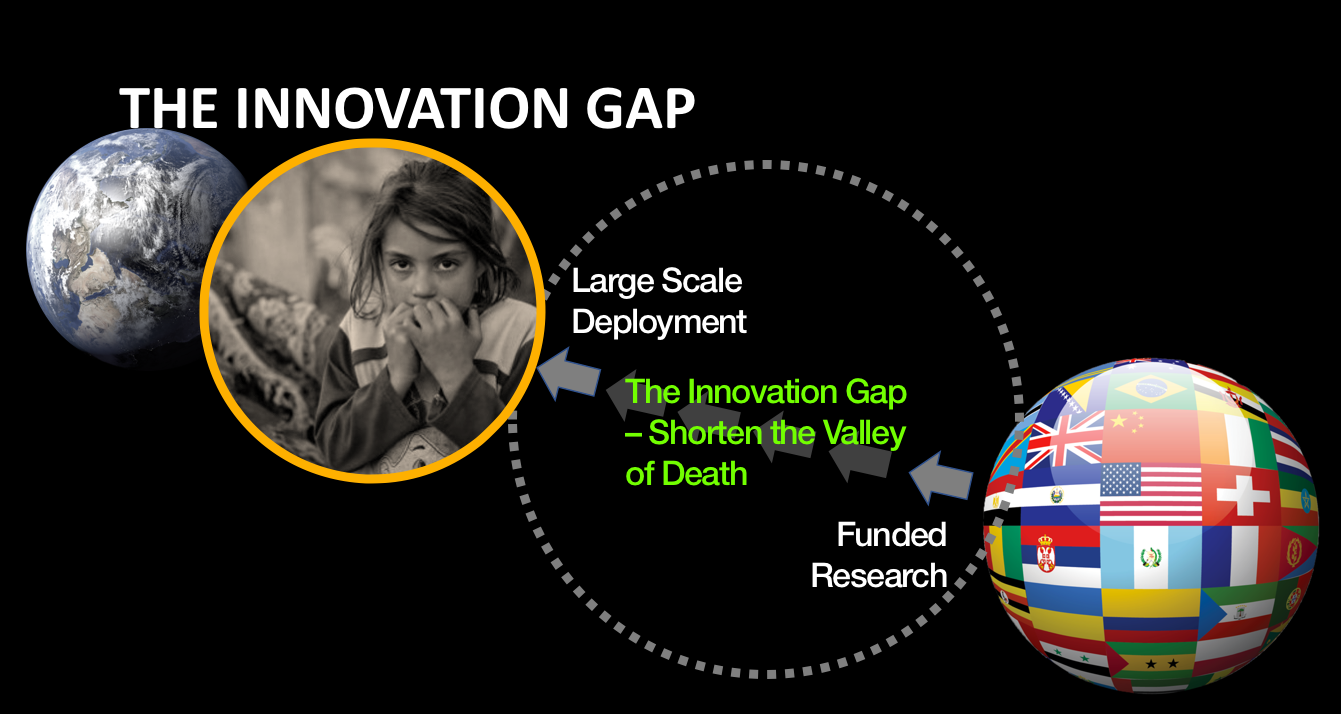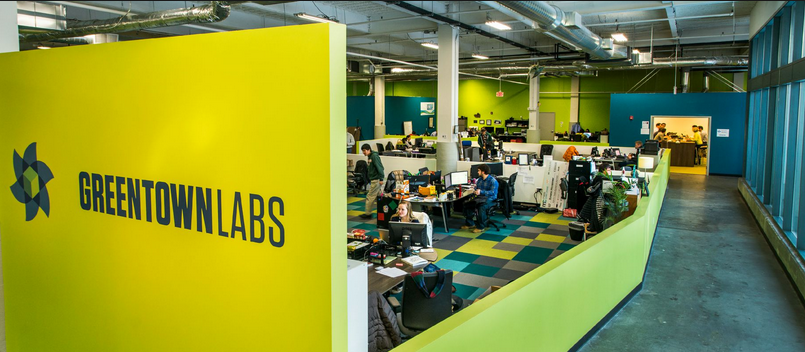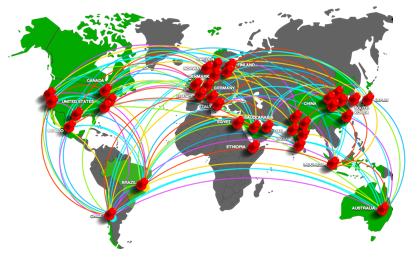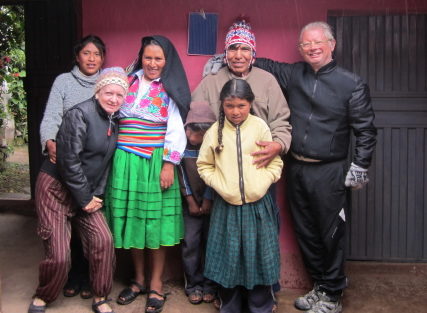Part 4: Slow Climate Change, Reduce Poverty, Spread Entrepreneurial Development. Repeat. Often. Everywhere.

Part 4: What’s the problem, anyway?
All scientists, researchers and engineers should skip this article
Today, most of the world’s leaders (not You Know Who) acknowledge climate change’s threat and have committed billions of dollars to research new sustainable energy technologies or scale existing sustainable solutions (e.g., wind and solar). Unfortunately, much – if not most – of this investment will be under-utilized because there is no mechanism that can efficiently get new technology solutions out of research labs into the market on a global basis. This has created a global innovation gap between technology and the markets that desperately need its benefits today.
The Innovation Gap
There is no coordinated, efficient, comprehensive way of bridging this gap today – it’s all ad hoc with loosely connected efforts. Incubators, or other innovation centers, are most often regionally focused with sporadic connections to other parts of the world. Existing “networks” are usually only skin deep and concentrate on periodic convening events.
Don’t look to the national labs or the research universities to bridge this gap, because they have a “Not my job!” attitude when it comes to commercialization. Researchers are not incentivized to focus on the application of their invention and frankly most of them don’t have the skills to build businesses quickly. Despite what happens behind their lab doors, most universities aren’t flexible, fast-paced, and creative enough.
Why isn’t it the role of the private sector – specifically the venture capital and start up communities on the Left and Right Coasts — to bridge this gap? Well yes and no. Capital – especially venture capital – flows to the use with the best return in the quickest amount of time, which is not impact technology. We bend metal, build products, do chemistry. The average impact technology exit for a VC fund is 10+ years vs. 7+ years in the App and Mobile worlds. Hence, most VC money – and their well-developed support systems – has moved downstream on the impact technology market. As a result, the “flow” of risk investment capital to early stage clean technology entrepreneurs is best described as a trickle.
But the lack of money isn’t the only thing that’s causing in the innovation gap. Where are the entrepreneur assistance programs that cover the full range of cleantech start up issues needed to grow a clean technology company? There are some stand-out examples – Greentown Labs in Boston, the Austin Technology Incubator come to mind – but not many and certainly not around the world.

The kind of “ecosystems” that are needed are very different from those that support for the digital and media technologies. Condensed programs aimed at getting an investment in a couple of months’ time just don’t work for chemistry or hardware based technology companies. We need longer incubation, we need pilot programs with large customers or government agencies, we need help in scaling up manufacturing, expertise in developing a distribution network, a supply chain, etc., etc. The number of organizations that attempt this kind of assistance can be measured on two hands.

An ecosystem of ecosystems
We need to connect scientists with entrepreneurs with investors, with customers, with policy makers in 40+ countries. (yes, you read that right – 40. More on that later). At its core, our envisioned network is a collaboration of entrepreneurs and other innovators driven by a common mission to slow climate change and build economic wealth at the same time. Globally. In real time. At scale.
We are already working on this and have made significant progress in the last 24 months with supporters in the U.S., Canada, Mexico, Germany, Italy, Finland, India, China, and Japan. This is just a start – significant for sure – but we know the road before us will be challenge.
We’re looking for the few who have the guts to tackle the earth’s biggest problems by building the world’s greatest impact technology companies. And, we don’t care about your age, gender, sexual preference, religion, or race or whatever else might make you special.
If you want to help build this network, then I want to talk to you. Anytime. fred@fhwii.com




Leave a Reply
Want to join the discussion?Feel free to contribute!